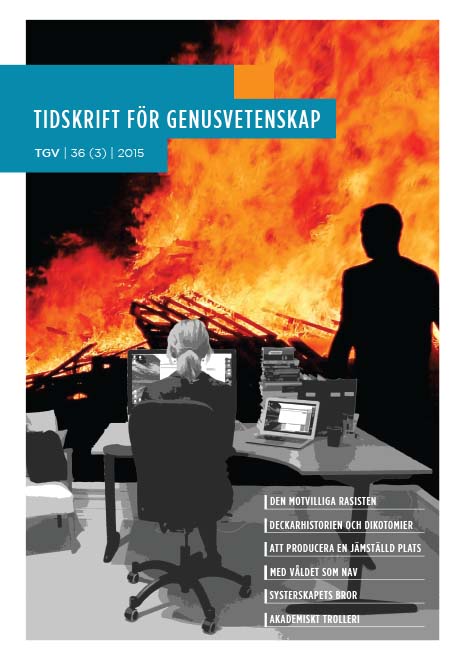Den nödvändiga jämställdheten
DOI:
https://doi.org/10.55870/tgv.v36i3.3193Nyckelord:
jämställdhet, plats, Kiruna, kritisk policyanalys, problemrepresentationer, könade maktrelationerAbstract
Norrland is often represented and constructed as a “typical male” region, a region dominated by rural problems. The “male” power structure is often depicted as a static problem, a part of a rural traditionally bound periphery which cannot be changed. In public discourse, Kiruna is positioned as a town adjusted to men which is a situation in need of change; it is argued that gender equality is a necessity for Kiruna’s survival. Put differently: there are clear ambitions for change. By studying how gender equality is made and how gender equality is produced in different practices, this article studies the implications of these ambitions. A key analytical starting point is that gender equality is something “made” by various actors in specific contexts. Gender equality is understood as an empirical field filled with meaning, or produced, in different contexts, not as a “fact” that can be measured. With place as an analytical hub, and inspired by Carol Bacchi’s critical approach to policy analysis we examine how gender equality is articulated and how place is produced. Using policy documents, newspaper materials and interviews, we conclude that gender equality is filled with partially different meanings in the three themes, but attractiveness stands out as a central underlying rationality – often in combination with participation and the absence of conflict between women and men. These representations of gender equality create a win-win, a non-conflictual understanding of gender equality, underpinned by an understanding of men and women as different and complementary subjects. In spite of clear articulations of men’s privileged position and women’s subordinate position, the measures suggested for achieving change target the image of Kiruna rather than gendered power relations. We explain this result in the context of overall processes of de-politicisation in contemporary society and by the need for Kiruna to be seen as “good” and “attractive” in order to challenge and avoid reproducing the picture of the Northern periphery as backward and traditional.
Nedladdningar
Downloads
Publicerad
Referera så här
Nummer
Sektion
Licens
Författaren/författarna behåller copyright till verket.





